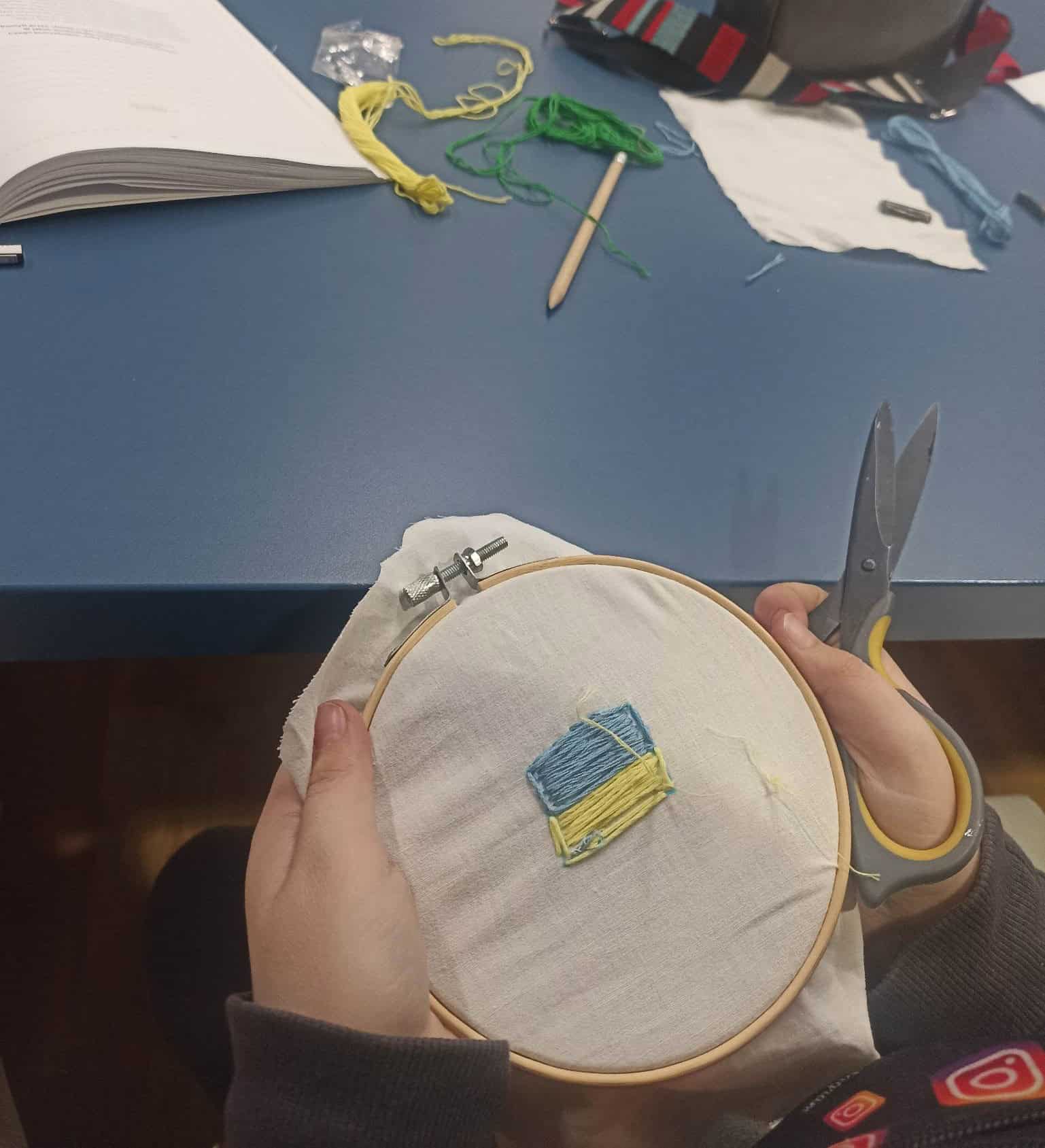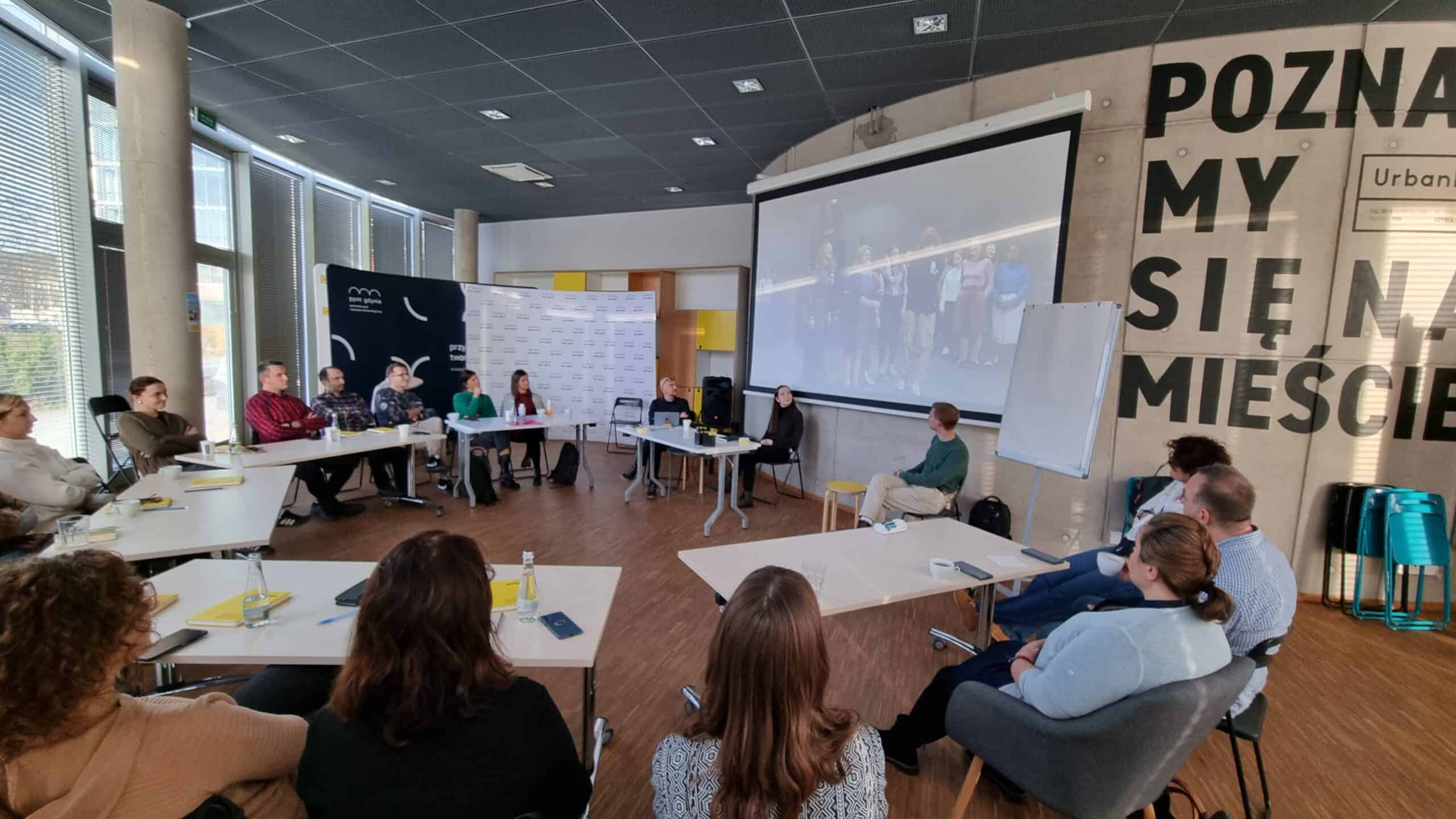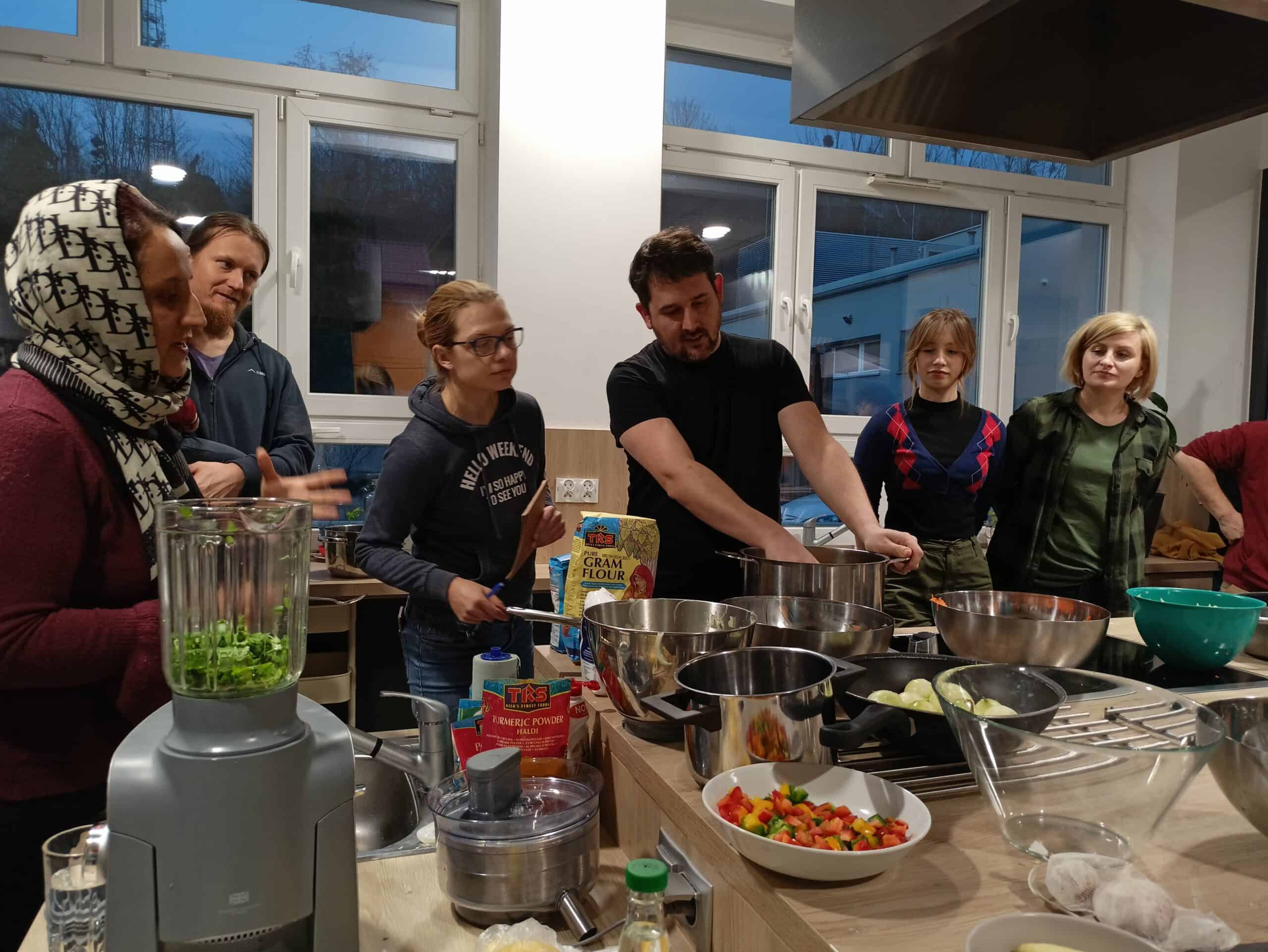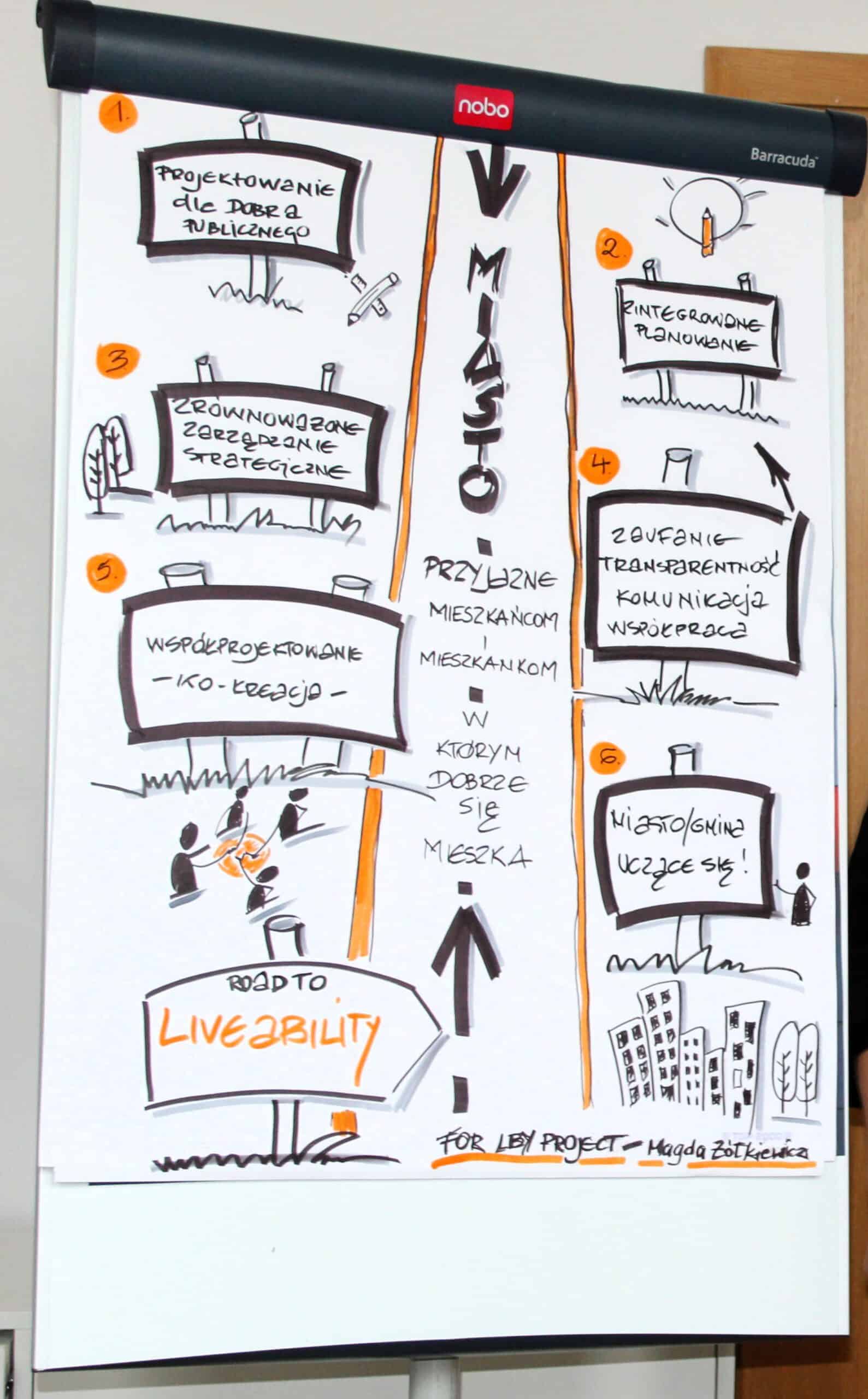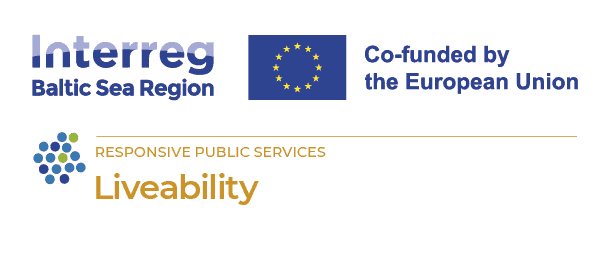
A Network of Community Centres - Gdynia, Poland
30 April 2025
The network of community centers, located in different districts of the city of Gdynia, is managed by the Social Innovation Lab (SIL) in cooperation with public libraries, the city’s sports department, which are public institutions. These centers provide spaces for local communities to engage in various activities, including informal education, sports, hobbies, toddlers’ clubs, and simply meeting with neighbors. They also serve as hubs for the city’s social services, providing access to free psychological support or legal advice.
WHY | Purpose
From March to September 2022, the community centers, together with their public administration staff, provided temporary shelter to people fleeing the war in Ukraine. Subsequently, the centers provided spaces and opportunities for the social integration of the new citizens with the local residents. Run by local authorities, open to all citizens and with easy access to public services, the network of centers is ideal for testing and implementing new city services.
The pilot focuses on socio-cultural integration of the newcomers with the population of the receiving city, including the refugees and migrants from countries who had moved to Gdynia before the Ukrainian war.
The goal is to:
- test the application of the Public Interest Design and the Livable City Charter in the context of an emerging intercultural community;
- support inclusive and social integration aligning with the values of the Liveable City.
HOW | Field of Action
Encouraging all stakeholders in the neighborhoods to participate in creating tools and solutions that promote better mutual understanding of diverse backgrounds and enhance intercultural integration. the aim is to ensure open, friendly, harmonious, therefore liveable neighborhoods, where all residents feel welcome, safe and are willing to co-act/co-operate and contribute to the common good. Fostering inclusive and social education and co-operation based on the Liveability values’ through and by:
- Inter /cross / multicultural co-education – participatory trainings and manual / guide
- support of co-active intercultural initiatives and events.co-active intercultural initiatives and events
WHO | Actors
- local public administration employees working in the community centers, public libraries, social services, and other cooperating institutions and entities providing community and support services in Gdynia
- local NGOs
- community leaders and residents of the neighborhoods with SIL’s coordinated community centers
Lessons learned
The goal of the local pilot project was to develop effective ways to support the integration of new residents, especially refugees and migrants, into the local community of Gdynia, using the potential of neighborhood centers.
The challenge:
- How could we develop the services of our neighborhood centers to better meet the needs of all residents and to promote intercultural relations?
- How could we help newcomers – especially refugees and migrants – integrate with local citizens and feel welcome in Gdynia through the network of community centers?
Through workshops, meetings, and consultations, the Gdynia’s Liveability Project team sought to cultivate an organizational culture that encourages learning and growth. Key lessons from the process include:
-
- Staff trained in intercultural approaches can better facilitate social integration through thoughtful interactions and behavioral nudges.
- Open-minded, stereotype-free public administrators can serve as role models, making community centers more welcoming spaces.
- Genuine intercultural cooperation requires time, effort and the active participation of all stakeholders.
The test shows that fostering an inclusive, livable city is an ongoing journey that requires commitment, empathy, and cooperation from the entire community.
Potential follow up activities
The testing process and culminating training workshop on intercultural communication and the development of inclusive community spaces resulted in the idea of a communication manual/guide for responsive public services in an intercultural city.
The content of the prototype guide includes topics such as human rights-based approach, cultural sensitivity, inclusive language, non-violent communication and anti-discrimination practices. Both the training program and the content of the guide were developed with experts from renowned NGOs with international experience in the field. It aims to strengthen intercultural communication skills and promote friendly community spaces with a practical and handy script that can be reviewed and referred to in case of doubt or need.
As the pilot was small-scale, the manual has the potential to benefit a wider range of stakeholders and serve as a tangible, sustainable tool for ongoing and future initiatives. Once finalized, the guide will be shared with Gdynia’s twinning colleagues in Krosno, where they are developing the model and space for a local neighborhood activity center.
Poster download: LBY_Testbeds Poster_Gdynia_April 2025
Interactive map showing pilot locations. Use the arrow keys to move the map view and the zoom controls to zoom in or out. Press the Tab key to navigate between markers. Press Enter or click a marker to view pilot project details.






